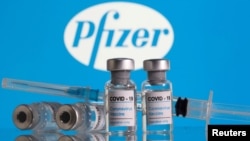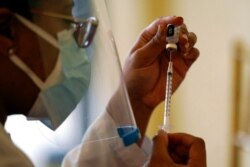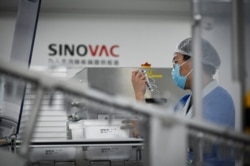A new study shows the new Pfizer-BioNTech COVID-19 vaccine is effective against the South African variant of the virus, although it generates a slightly lower immune response.
In a report published Wednesday in the New England Journal of Medicine, researchers with Pfizer and the University of Texas Medical Branch created a version of the virus that carried the same mutations found in the South African variant dubbed B.1.35.1. They tested the engineered virus against blood samples from people who had received both doses of the Pfizer-BioNTech vaccine.
The results found the vaccine’s ability to produce antibodies was reduced by two-thirds, compared with its effect on the most common version of the virus.
In a separate letter published in the NEJM, U.S. drugmaker Moderna says it has discovered similar results with its two-dose COVID-19 vaccine in fighting the B.1.35.1 variant.
Pfizer and BioNTech issued a statement saying they were making the necessary investments and talking with regulators in anticipation of developing an updated version of the vaccine or a booster shot.
Hong Kong OKs Sinovac's vaccine
Meanwhile, Hong Kong has formally granted emergency use authorization to Chinese-based Sinovac’s coronavirus vaccine.
The drug’s approval came after the city’s special advisory panel on COVID-19 vaccines recommended its use despite the fact the company has not publicly released the results of a late-stage clinical trial to determine the vaccine's true effectiveness.
The panel says it has received data from Sinovac showing the two-dose vaccine has an efficacy rate of just over 62% when administered 28 days apart — a number far better than the 50% efficacy rate reported from late-stage trials conducted in Brazil, the very threshold recommended by the World Health Organization.
The first batch of one million doses of Sinovac vaccine are expected to arrive Friday, with inoculations expected to begin exactly one week later.







